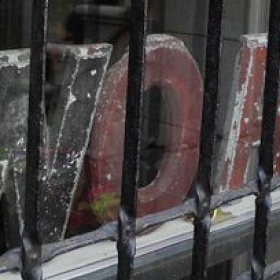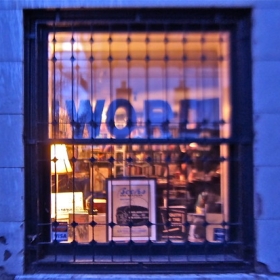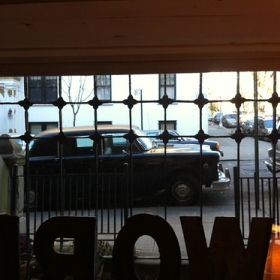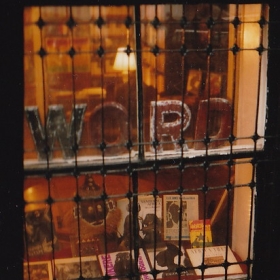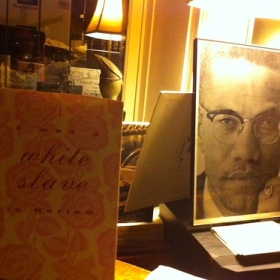Occupy Strand
If you have ever sold a book for or to the Strand you know there is nothing new in being taken advantage of by the Bass’s. When we parted company in 1975, over the then deplorable working conditions, poverty wages, the abusive attitude of management to staff and the unionization of the shop, it was Ben and Fred. Old Ben, who hired me, was on the Left. Fred was new Right, a neo-con. Ben made only so much of a secret of his disgust with his son’s worldliness. Who knows what he’d have made of Nancy, who they say, is just wrong, all con.
 Yesterday, May Day, I picketed the Strand with my neighbor, June Benjamin, representing the UAW, as I stood with her last fall when hers was the first union to ally with the Occupy Wall Street movement. It is the only time I have been to the store and not bought a book. Last year I spent somewhere upwards of $15,000 there and I’m rethinking that.I am enjoying my patronage less and less. It is an unhappy place. One of my friends has worked there since the Seventies, all the more remarkable for the recent purge of 70 long standing employees. They have been there for the love of books and what austere security the union afforded and now the union’s being busted.
Yesterday, May Day, I picketed the Strand with my neighbor, June Benjamin, representing the UAW, as I stood with her last fall when hers was the first union to ally with the Occupy Wall Street movement. It is the only time I have been to the store and not bought a book. Last year I spent somewhere upwards of $15,000 there and I’m rethinking that.I am enjoying my patronage less and less. It is an unhappy place. One of my friends has worked there since the Seventies, all the more remarkable for the recent purge of 70 long standing employees. They have been there for the love of books and what austere security the union afforded and now the union’s being busted.
Management’s philosophy runs counter to staff’s bibliophilism. It is a business, like any other business, and a position stocking shelves is, to their minds, is not to be confused with Littérature. The big book chains and publishing takes much the same attitude as fast food purveyors regards product and staff. More calories, less nutrition, longer working hours for less pay and fewer benefits only make good business sense. Nourishing “charming cultural banter” (CCB, as it’s known in the trade) with customers doesn’t.
Book sales and prices are down across the board but while we can’t know the actual state of Strand’s finances, as a professional bookseller of forty years – thirty-eight here in New York City – I doubt that they’ve been much hurt. The disappointing results of the digitalization (and its attendant decay) of the book and internet dealing are likely to find them at an advantage. If you have books to sell right now, unless you’ve sufficient time to catalog and post them on the internet, in New York City, publishing’s capital, there are few options beside the Strand left. Consequentially, the store has improved. No one has a better selection.
Though they ask you don’t show up with your NY Times bestseller collection, better quality is nobody’s intent. They are simply common as cat shit (some would argue, as nasty); not worth the real estate. In proportion to fiction’s diminution culturally, the store has lately lowered its price. Nobody buys them on-line either and when they do the profit is squeezed out of padded postage and handling.
You can still expect the nickel on the dollar you’ll get for good scholarly/coffee table material that’s appreciating. Even with their prices for very good+ quality material rising, in this they remain competitively priced, as does Powell’s, with Amazon. As opposed to on-line, what you see at Strand is what you get. Better yet, you find what you weren’t looking for. Their advantage over ebooks is tangibility and quality. Digitalization deteriorates. When you buy print on paper you get something. When you buy from them on-line you can be somewhat assured that the cataloger is accurately describing the edition and condition, unlike Amazon.
It wouldn’t hurt the Strand to employ knowledgeable clerks and pay them a living wage with benefits. An educated consumer is their best customer and mentoring a new generation of readers and booksellers would be in their better interest. Justifiably disgruntled workers discourages all but two, Fred and Nancy Bass – who are taking it to the (river) bank:
Click here to view the embedded video.


